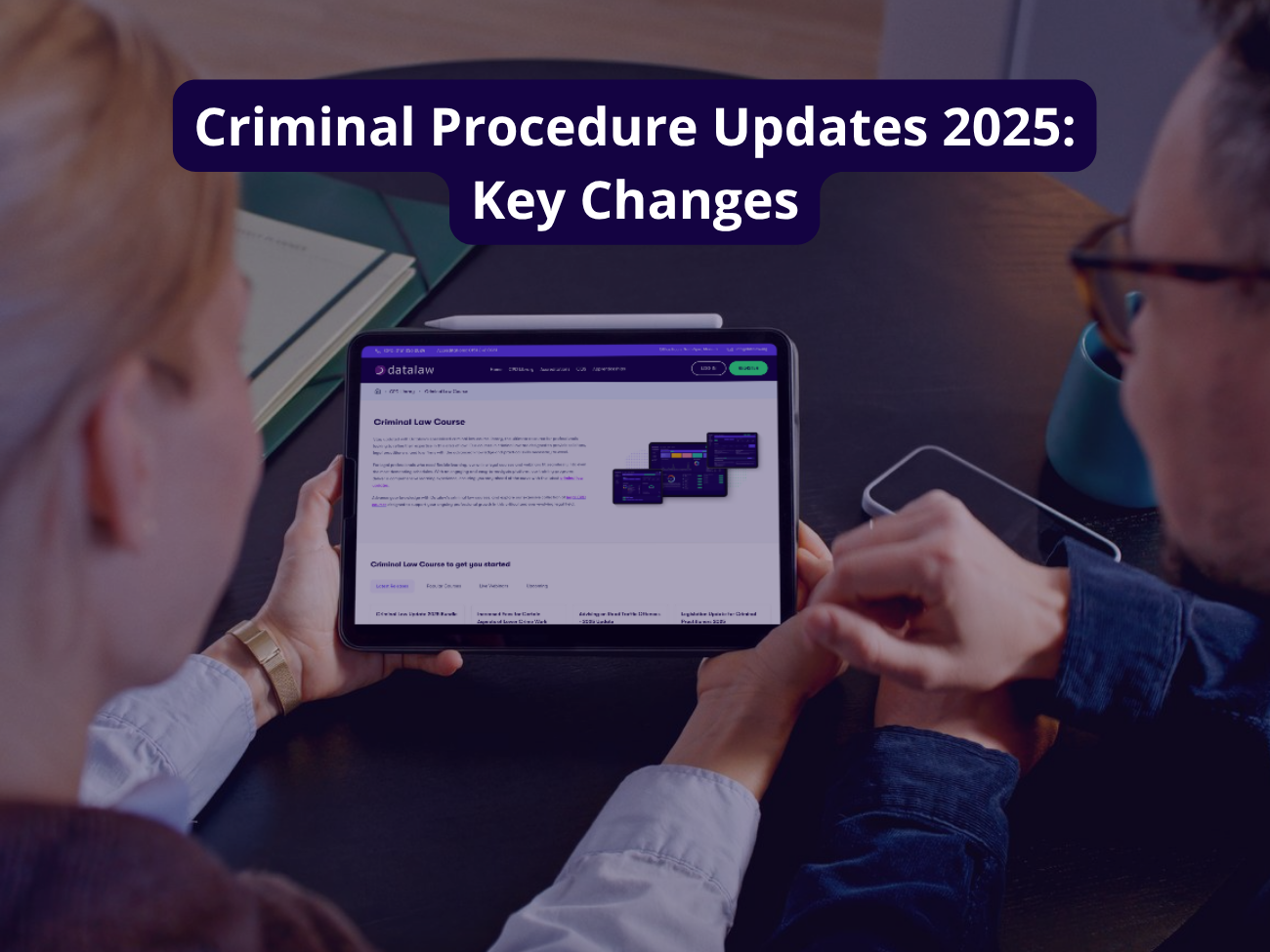In the fast-evolving legal landscape, staying informed about criminal procedure changes is more important than ever for legal professionals. As new reforms take shape in criminal legislation across the UK, it’s crucial that solicitors, barristers, and legal support staff adapt quickly. From shifts in case law to updated courtroom procedures, every change can impact how a case is prepared, argued, and concluded.
Understanding and adapting to these developments ensures legal professionals remain compliant with new standards and continue to offer effective, well-informed representation in court.
Download our Free “Criminal Law Update Bundle 2025” Brochure
Legislative Changes in Criminal Procedure
One of the most impactful developments in 2025 is the introduction of significant updates to criminal legislation. These reforms touch on core elements of criminal law, including:
-
Sentencing guidelines
-
Evidentiary rules
-
Disclosure and procedural timelines
The aim behind these changes is to improve the efficiency of the justice system while reinforcing fairness and consistency across criminal proceedings. For example, recent updates to bail conditions and evidence admissibility rules seek to strike a better balance between safeguarding defendants’ rights and supporting the needs of victims and the public.
Legal professionals must stay ahead of these legislative reforms by familiarising themselves with the latest statutory updates. This knowledge ensures they can provide accurate, up-to-date advice to clients and maintain compliance with evolving court protocols.
Recent Case Law Developments
Alongside legislative reform, case law remains a powerful driver of change in the criminal justice system. Judicial rulings influence how existing laws are interpreted and applied in real-world scenarios — and 2025 has already seen several landmark decisions that affect the daily work of criminal law practitioners.
Some of the key areas affected by recent judgments include:
-
The admissibility of digital and forensic evidence
-
Sentencing discretion in repeat offences
-
Enhanced protections for vulnerable witnesses
These rulings redefine how legal professionals approach trial strategy, build defence or prosecution arguments, and advise clients on likely outcomes. Staying up to date with case law enables practitioners to anticipate how judges may rule on similar matters, identify potential grounds for appeal, and enhance overall courtroom advocacy.
Failing to keep pace with these developments could leave a solicitor underprepared, or worse, at risk of breaching procedural fairness and professional standards.
Procedural Developments and Court Practices
UK courts are also introducing new procedural measures aimed at streamlining the handling of criminal cases. These developments reflect the increasing complexity of modern trials and the demand for greater efficiency in the justice system.
Among the most notable procedural updates are:
-
New pre-trial disclosure protocols, requiring earlier and more comprehensive exchange of evidence
-
Guidelines for handling digital materials, including body-worn video and mobile data
-
Courtroom conduct and scheduling reforms, to reduce delays and improve trial management
For solicitors, these changes have direct implications for how cases are prepared. Missing a disclosure deadline or failing to handle digital evidence properly can result in adverse rulings, delays, or even case dismissals. Legal professionals must adjust their internal processes and document-handling systems to align with updated expectations from the courts.
The Role of Solicitor Training in Navigating Change
In such a dynamic environment, continuous professional development (CPD) is not just recommended, it’s essential. Solicitor training plays a vital role in helping legal professionals stay updated on criminal law reforms, procedural changes, and case law trends.
Engaging in regular training ensures practitioners:
-
Understand and apply the latest rules correctly
-
Maintain regulatory compliance and meet CPD requirements
-
Deliver informed, competent legal services to clients
By prioritising learning, solicitors reinforce their ability to adapt to legislative change and contribute to the effective operation of the justice system.
Stay Updated with an Online Law Course
To keep up with these critical changes, practitioners should consider enrolling in an online law course designed to cover the latest updates in criminal legislation UK and procedural reforms. Datalaw’s Criminal Law Autumn Update 2025 webinar, scheduled for release on Tuesday 14th October, provides an in-depth analysis of these changes. This expert-led session ensures that legal professionals remain compliant and well-prepared for the evolving legal landscape.
Discover more of our Legal Updates.



